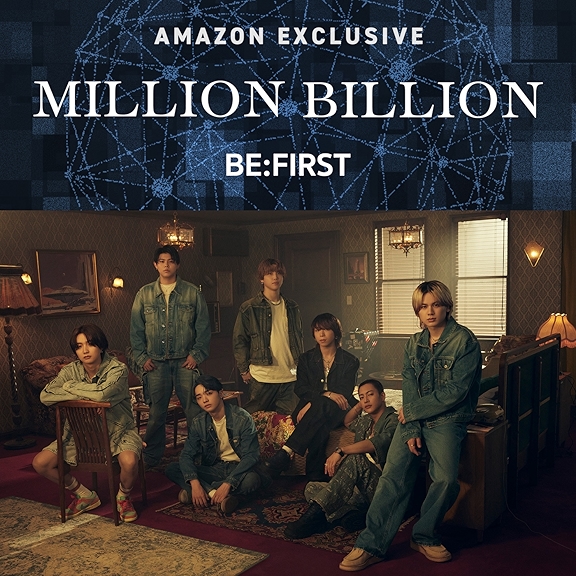
Returning to Trapital for a second time is comedian Roy Wood Jr. We last spoke in mid-2020 when lockdowns curbed his usual comedy performance routine. On the outside, it might not seem Roy has changed much since our first convo — he’s still a regular on The Daily Show with Trevor Noah — but internally, Roy is amidst another career evolution.
Roy made a successful comedic career — three specials on Comedy Central over a five-year span — out of finding unique angles to discuss external events such as news and politics. But now, Roy wants to talk about himself. Spurred by an appearance on PBS’ “Find Your Roots”, Roy is more introspective about the relationship with his father, a civil rights activist, and how it influences raising his own son.
How and where Roy delivers this refined message hasn’t been decided yet. For now, Roy is taking time for himself to think through how he’s changed, and so has comedy and the entertainment industry at-large. In our discussion, Roy hinted at some of those major changes. Here’s what we covered:
[3:15] The state of live comedy in 2022
[5:32] Roy’s insane performing streak from 1998-2020
[6:27] Why the comedy club isn’t the right venue for Roy right now
[11:45] Comedian expectations have changed
[13:35] Morality vs. profit
[17:05] Roy’s partnerships
[18:42] Roy’s criticism of Netflix and streaming
[26:27] The new superstar is an assemble cast
[31:08] How Roy chooses comedic topics
[34:43] Roy’s most personal joke
[35:24] How much does Roy’s son know about his comedy career?
[37:39] How Dick Gregory changed Roy’s life
[40:48] Roy starring in Confess, Fletch movie
Listen: Apple Podcasts | Spotify | SoundCloud | Stitcher | Overcast | Amazon | Google Podcasts | Pocket Casts | RSS
Host: Dan Runcie, @RuncieDan, trapital.co
Guests: Roy Wood Jr., @roywoodjr
Sponsors:
MoonPay is the leader in web3 infrastructure. They have partnered with Timbaland, Snoop Dogg, and many more. To learn more, visit moonpay.com/trapital
Enjoy this podcast? Rate and review the podcast here! ratethispodcast.com/trapital
Trapital is home for the business of hip-hop. Gain the latest insights from hip-hop’s biggest players by reading Trapital’s free weekly memo.
TRANSCRIPTION
[00:00:00] Roy Wood Jr.: You can be funny, you can get away with being funny for a little while, but true career longevity as a comedian, I believe, you have to make people feel, you have to give them an emotion. Sooner or later they have to leave feeling a certain way. It's not just a matter of the tactile Xs and Os of did they laugh at the setup? Did they laugh at the punchline? Okay, next joke. It's what are you infusing into that person's heart on the backside of this experience that you all had together on stage for an hour.
[00:00:36] Dan Runcie:Hey, welcome to The Trapital podcast. I'm your host and the founder of Trapital, Dan Runcie. This podcast is your place to gain insights from executives in music, media, entertainment, and more, who are taking hip-hop culture to the next level.
[00:00:56] Dan Runcie: Today's guest is Roy Wood Jr. This is his second time back on the podcast. The first time we recorded a podcast was back in the middle of 2020, middle of the pandemic. And we talked a lot about how the closure of comedy clubs and the closure of everything was affecting his life as a comedian and what he saw the world would be like on the other side of the pandemic. And now we're starting to be here, so it was a great opportunity to check in, hear how things are going for him. And we talked a lot about how the past couple of years have reshaped his perspective on the type of message that he wants to be able to. What are the best venues to do that and how he might change his approach up a little bit in the next few years. We also talked about streaming and what it's been like from his perspective as someone that is acting in movies, acting in TV shows, writing and producing shows as well, and how it's been like navigating these streaming networks, what their goals and incentives are. What his goals and incentives are and what he has seen from others in this space. We also talked about his upcoming movie Confess, Fletch. It's out in theaters on September 16th. It stars Jon Hamm. This is a reboot of the classic Chevy Chase Fletch movies from the eighties. So we talked about what to expect there, what he's excited about and more. Roy's good people, man, plain and simple. If you listen to the last conversation that him and I had, you know that if you've watched anything he's ever done on The Daily Show, ever seen him perform standup, you know that as well. Here's our conversation. Hope you enjoy it.
[00:02:30] Dan Runcie: All right. We are joined today by a return guest to the Trapital podcast, the one, the only, Roy Wood Jr. How are you doing man?
[00:02:38] Roy Wood Jr.: You're back. I'm back. You're welcome. You're all welcome. I apologize in advance for my voice. There's things that happened this week that I did not plan on happening. And this is the result. It was either this or cancel, and I didn't want to cancel it.
[00:02:54] Dan Runcie: No, I appreciate you. Hey, it's either this, or, you know, this is part of getting back on the road, right, 'cause I feel like the last time we talked, we were talking about what the other side of this whole pandemic was going to look like and what it was going to be like for comics returning to the stage. And now you're in it. What has it been like to return to the stage and with everything?
[00:03:15] Roy Wood Jr.: What's wild is that I can't tell you too much. You know in 2022 I've only done four or five road gigs. Most of my gigs this year were COVID makeup dates from '21. So I've been blessed enough to be able to, you know, have a podcast that I'm able to do for myself, and sell a couple of scripts, and just create other revenue streams for myself, when the pressure to go back out on the road wasn't there. Also, creatively, I'm just in a different spot, bro. And I know that the stuff that I want to talk about, I don't know if the comedy club is the right place. It's part of the process creatively, but I just haven't been in a rush to get back out to figure it out yet, you know? It's been a really weird year for me in that the thing that I've done for 23 years is the thing that I did the least this year. And you know, that part of it's been really odd. It seems like the clubs are doing well though. You know, I still talk to a lot of comedians that are in the clubs because I'm still kind of that on the outside looking in. So I see all the comics who are touring, there's guys who I didn't know were headliners yet, but apparently, they are now. They're out there, they're doing their thing as well. So, you know, I'd say, all in all, it seems like the comedy club model got through it okay. But I don't know how sustainable it is as an entertainer to continue to be a part of this standup comedy model. You know, a lot of these new cats, you know, they're finding their own venues and they're figuring out their own way through the internet to get shit popping for themselves. But, you know, I will say this about standup. Since the shutdown, this idea of having one magical five-minute set on late night, and that being the thing that definitively becomes the new pivot point in your career, the likelihood of that happening is definitely less and less as the years go by.
[00:05:09] Dan Runcie: Interesting. I could only imagine how big of a life change it is for you. I remember you saying in the past, from when you started this once out of every 10 days, you were doing something on the road, right? Whether it was a standup show or something, and for you to be doing this completely different now, and just thinking about what the adapting is a complete life change, let alone anything on the business side of things.
[00:05:32] Roy Wood Jr.: Until the shutdown, until a federally mandated government shutdown, from 1998, I'd never gone more than 10 days without performing, period.
[00:05:41] Dan Runcie: It's huge.
[00:05:43] Roy Wood Jr.: And I've gone months. I look forward to it for months at a time. I don't have another gig right now. And I have a corporate gig in three months and I'm like, perfect, perfect because it gives me the time, it gives your brain the time to settle. I can only imagine, you know, when you look at guys like Chris Rock, who have said, you know, you need time to go away and live and see the world and experience things and have something to come back and report on. I understand that now.
[00:06:13] Dan Runcie: You also mentioned too, that there's material that you want to talk about, topics that you want to discuss that the stage may not be the best place for that. What are the things you want to discuss and why isn't the stage the best format?
[00:06:27] Roy Wood Jr.: It's not the stage it's comedy club specifically. Like, alright, so I did Finding Your Roots over the shutdown and found out a lot of new truths about my father and, you know, some stuff on my mother's side, but as a father, myself, I often feel this attachment to my dad and then looking at how my father lost his dad when he was four. My granddaddy was gone when my dad was four. So when I think about that type of stuff, how that will inform the type of man that I will be to my son, and just family, and bonds, and the men who raise me in my father's absence. And there's jokes and there's stories, but as I figure out what the heart of the story is first before I make it funny, I don't know if the comedy club is always the right place for that because the comedy club, motherfucker, we want the jokes. I've been drinking. Me and my wife got dressed. I came here to be happy. You up there talking about your dead daddy and trying to figure out what that means for your son, motherfucker, I don't want to hear all that shit without jokes. So I think there's a place to go and develop that, you know, New York has a lot of different places, but also I think it's important for me to do my standup in venues other than comedy clubs because I think that sometimes, depending on the venue, you know, jazz club or black box, little theater or some improv house, I believe it changes how the material is received. You know, it changes how people listen to you sometimes. This is a terrible analogy and it's not going to be a perfect analogy, but it's like how food tastes better in church. You know, like when your grandma will pull a peppermint out of her purse, and she gave you that peppermint in the middle of a long ass church service, and that peppermint tasted like a pizza hu meat lovers. Like, it was just an amazing, so where we are sometimes can change the experience and the connection to the material. And so as I start mining this material, I'm going to have to figure out the best places to put it all together 'cause I feel like I'm teetering into some one-person show territory. And, you know, every comedian that I know that did a one-man show, you know, they didn't build it in a comedy club. You can sure present it at a comedy club, but you cannot build it there. That's why I've been meaning to talk to Jerrod to figure out where he built up Rothaniel 'cause, you know, that one was definitely a blend of the two skill sets.
[00:08:54] Dan Runcie: Yeah. That's a good example of it. Just how he was able to be so raw, be so personal and different than anything he had done before leading up to this. I got to imagine, too, that part of this may also be linked with just the evolution of comedy and some of the other topics you've talked about recently and how people, especially nowadays, are looking for comedians to be truthsayers or they're also looking for them to be the ones that can tell them certain messages and how there's some people that believe that should be the case, but there's others that, I know you said this before, that it shouldn't necessarily be that way. So I feel like there's some of that that could also be potentially in line with some of the broader feeling about what is the best message to communicate where.
[00:09:39] Roy Wood Jr.: Yeah. And I think once you figure that out as a performer, the people will come find you. You know, I don't really think it matters where you go once people love you, they will follow you to wherever, you know, so I think that's it. They went to a farm to see Chappelle. So you can come up with different venues, you know, once you have the ideas that are worth hearing. So it's my job first to get the ideas together.
[00:10:02] Dan Runcie: Right, yeah. There's something about that comedy club setting, like you said. You're going with your significant other, you got the two-drink minimum. No, like I'm trying to get these laughs out that just doesn't, that works there. That doesn't necessarily translate elsewhere that could obviously work to your benefit going elsewhere.
[00:10:18] Roy Wood Jr.: You can get deep in a comedy club, but you really have to stack the show properly. The people have to know who they're coming to see. And I'm still a comedian where, you know, with The Daily Show, unfortunately, this is a lot of people's first discovery point for me. So you don't know the previous 15, 16 years before I got with Trevor. So, you know, even those people come to a show and they want me to be a little more political than what I am on this show. And I'm like, sorry, that's not who I am. That's not what I do. So even within the construct of just regular standup, they still want something more specific. So, you know, it's about just figuring out, you know, the right places for that. But if you put that person in a setting they've never been to before, well, now you don't know what to expect. And I just think it just changes how you see and analyze things a little bit. You know, I'm going to try to experiment with, you know, different venues in '23.
[00:11:15] Dan Runcie: That makes sense. You mentioned the politics piece of it, too, and just , given what you and Trevor are doing on The Daily Show, people coming to you for that. But I assume part of it also is channeling back to that truthsayer thing and seeing some of the things that Chappelle and others have talked about. Do you think that the way the current climate is that when people are expecting you to speak on these things, do you think that this changes and continues to evolve, or do you feel like this is kind of the place that things are right now?
[00:11:45] Roy Wood Jr.: I don't think that the role of comedian has changed. I think that the expectations of a comedian have changed. Some for the better some for the worse, but I can't think of any one standup comedian that I know that is, like, set and looked themselves in the mirror, okay, today these jokes are going to change everyone's and change the world. You know, comics are more outspoken. Comics are more, you know, quicker to say what they feel on stage, especially the young ones, which is good. But I don't feel like when people say this climate, the climate is about the people reacting to what the comedian said, but most of these comedians that people get mad at, they've been saying shit like this for a long as time. But they're groups of people that have decided, you know what? I want to hear that shit no more. So they got something to say and they got a right to that. But I think at the end of the day, I don't think comedians have changed. I mean, Louis C.K. Back, he's cooking. Chappelle got another three special re-up from Netflix after all of the outrage or whatever. So that should show you where the corporations stand. And for as long as you are an entertainer that has an audience of some sort, you know, they're going to find a place for you regardless of whether or not that pisses off another group of people. You know, that's just kind of where we've always existed as a society. It's capitalism, baby.
[00:13:10] Dan Runcie: Does part of you see someone like, let's take Chappelle, 'cause you had mentioned him, him still getting these deals even after the backlash or even after the response. Does some of that almost feel like, okay, we're not necessarily just responding to what people may get mad at, there's still clearly an opportunity or there's still people that want to hear what we have to say, even if the expectations from our viewers have changed?
[00:13:35] Roy Wood Jr.: I think that as a society, you know, it is very difficult to place the expectation of morality and profit on a corporation. Most corporations have to choose between one or the other. And when I say profitability, you know, we're talking gross levels of profitability. I don't think many companies care to a certain degree about people in general. You know, this is bigger than just entertainment and whether or not you can say something that pisses off a group of people. Delta Airlines just started paying their flight attendants for when the plane doors open and they're boarding passengers. It's nothing moral. There's nothing moral about that, but it's definitely profitable. And only when it became embarrassing, which is not profitable, that they become a company with morals. If you can't attach profitability to morality, more often than not, you're not going to find a corporation that's going to make moves like that. I'm not surprised that Netflix gave Chappelle more specials for the amount of people that were mad at it, clearly, somebody was watching it and this is Netflix. Netflix cancels shit while you are in the middle of watching the episode. The second episode of a 10-episode show will come out and Netflix about, yes, cancel. What? Damn, can I finish? Season one? Nah, we've already looked at the metrics of the first episode that tells us everything we need to know. So, you know, that's a company that, you know, like people say that, oh, it's a FU to the LGBTQI community. It's definitely a slight to them for them to rebook Chappelle after they had said what they said and everybody had protested, whatever, whatever. But also Netflix is a company and that's about profit, which means somebody was watching Chappelle. And that's all they care about. That's all most companies care about is eyeballs. So, you know, unless you're getting into just straight-up criminalistic behavior of someone, morality versus profit is always going to be a tug of war that most corporations, they just do not have the heart that people do.
[00:15:34] Dan Runcie: That's real. That's real. I mean, and even thinking about Chappelle specifically, because of how Netflix tracks the performance, a lot of the backlash likely helps those episodes because you have some that are tuning in because they want to hear what he has to say. But you have others tuning in because now they want to see or hear what he said that is causing all of these headlines.
[00:15:55] Roy Wood Jr.: And that's all Netflix cares about. So the surprise on the backside is that can you believe this company didn't care? Yes, I can absolutely believe this company didn't care because more often than not most companies don't care. And that goes into women's rights, that goes into race, and George Floyd, and every company putting up black lives matter, whatever the fuck on the top of their website, and black squares and Instagram. So, you know, when it comes to a bevy of social, it is just, you know, it's interesting because corporations are now rocking a heart because now being moral. if it's profitable and cool, they'll jump on board. But if it's not, they're kind of like, eh, we'll see.
[00:16:37] Dan Runcie: Yeah, for sure. You've experienced this, you've worked with a number of these networks and seen the decisions that you've made. How has this impacted you at all with any of the partnerships you've made? I know you have the deal with Comedy Central that you've had. I know you had a special that came out with them, but we'll talk about that in a second. But how has that been with regards to you, and your specials, and your content, and how that works for you, both with the things that you want to do with the networks, and how you're able to still produce and create?
[00:17:05] Roy Wood Jr.: You know, from the standup side, you know, it's fine. We're Comedy Central. You know, we had a, I call it The Trilogy. I had my first three-hour specials with Comedy Central and they were good. And now, as I think about what that next block of content will be, you know, we'll figure out where that's supposed to go once I figure out creatively, what the fuck it's going to be? But, you know, on the scripted side and selling scripts, I've been very blessed to have opportunities to sell stuff, not just the Comedy Central, but you know, Fox and NBC in the last couple of years and HBO Max as well. but the thing is that it's very difficult to predict how COVID is going to affect a network's creative strategy when it comes to scripted, you know. Like scripted is, that's where the glory is. That's where the fun is, right? But, you know, I had one script, Jefferson County: Probation. Aaron Magruder was my, you know, executive producer and co-creator on it. And as soon as we got the script together and shot the pilot, there was a merger between Viacom and CBS and they changed their strategy. And then right after that COVID hit and they changed their strategy again. And at both of those mile markers, scripted shows were the first things to get cut from the budget because they're the most expensive. So the pressure to be profitable fast or to have a cultural impact fast is greater now on the content that, you know, that we have because the thing that I don't like about Netflix is that what streaming has removed from our zeitgeist is the concept of a cult hit. You know, like a cult hit TV show. Cult is just a nice way of saying underground and not a lot of people watch it, but the ones who watch it really, really love it. But there are shows that sometimes do not pop until season three. Sometimes season four and it takes people a while to get on board, but then you have a network that has creative execs who want to stay in that pocket. And now we believe in this show. We're going to give it another season, give it another season, give it another season. This don't happen with black shows. I'm talking about Arrested Development and you know, shit like that. And maybe The Wire, if you want to count that as a cult hit. But I feel like The Wire was more by the time they got to season four, everybody was on board, but at that point, HBO was like, wrap it up. Streaming, the analytics that are attached to streaming companies deciding whether or not a scripted show lives or dies has eliminated the ability for certain shows to germinate over a year or two, and really have an opportunity to find their audience, get the word of mouth. Everything is now, now, now. And so because of that, you know, where scripted is concerned, you have to have an idea that pops now, that sails, now that gets on TV now. And if you're really lucky, it also touches the vein of what is happening in the now. That's why Abbott Elementary is what it is. You have a great creator. You have a great writer. It's well cast, it's shot beautifully, it's funny, but also educators are at the forefront of a lot of the bullshit that's been going on the last two years. It's perfectly on the pulse. It's perfectly on the pulse. So, you know, word of mouth isn't enough. You also have to have the numbers. And so, you know, I'd say that for me, when it comes to coming up with scripted content, you almost have to find something that lives. You have to have the idea that lives at multiple intersections, because if it's just a fun, cool, nice idea. That might not be enough anymore. That's 2015 ideology.
[00:20:34] Dan Runcie: Yeah. The closest thing that seems like it's comparable to that cult classic of discovering it seasons later is when something gets picked up from a smaller network and then gets put on one of these big streamers. For instance, I'm thinking about South Side. Season Two. It's on HBO Max. And I think that made a lot of people that weren't watching South Side Season One discover it.
[00:20:57] Roy Wood Jr.: Correct. Like, there's a show that was on in Canada that came over to Netflix called Kim's Convenience and that was a fucking hilarious sitcom that somebody like me, I would've never discovered had it not come over to, but it had to live over in Canada for two years. But you need execs who care about the IP and care about the idea. And a lot of these execs are under the same pressure as the creatives. You better be bringing this studio, some hit shows and you better be signing and buying scripts from the best creators 'cause if you aren't and we don't have a hit, if we're not getting nominations, and we're not getting talked about it's your ass, too. So if you have an exec that is betting on a show, that's just has midling numbers versus just canceling it, and bringing in something new, there's also job security in that for them as well. And I think that's why, you know, to a degree, you know, you don't see shows that get an opportunity to build and grow their audience, either you a hit out the gate or you got a target on your back.
[00:21:57] Dan Runcie: The other challenging thing about this is knowing what those numbers are and whether or not the streaming services are sharing them with you. From your perspective as someone that is doing the scripts, selling shows, do you feel like you're getting any true quantitative aspect to be able to compare and say, okay, I see what I would've been able to hit or what the target is or how that compares, 'cause that's the piece that feels so non-transparent at all right now.
[00:22:26] Roy Wood Jr.: That part of the game is still above my pay grade because I haven't gotten anything that's gone to series. I've sold a bunch of scripts that have all gone to pilot and most have gone to pilot at least. But even with the stuff over at Comedy Central, you know, we're on basic cable. So it's Nielsen. So, you know, that's more above board than companies giving their streaming numbers. But I wouldn't even be able to speak to that, unfortunately. I hope to be able to one day, but not today.
[00:22:51] Dan Runcie: Yeah. There was some interview I had seen it was Steven Soderbergh or someone like that. And he was like, I have no idea how well these movies do. They literally just tell me, yes, this was good. You can make another one or no, we're all set. Thanks. And he's just like, okay, then that's when he decides to make another movie.
[00:23:08] Roy Wood Jr.: Yeah, that part of it, yeah, you are totally flying blind as a creator. You know, at some point there's going to have to be some equity in this, but, hey, sooner or later, all of these streaming sites are just going to keep merging and folding into one another. It's like airlines in the eighties. Go Google up how many different airline carriers we had in the eighties. And then here we are now with United, Delta, Southwest, JetBlue, and, what, American. Spirit and JetBlue emerging. So, okay, so you'll have, what, four or five major carriers? In the eighties, there was like, well, over 30. I could Google it real quick, but I know for sure I can name 15 airline companies from the eighties and I bet you the numbers are higher than that.
[00:23:50] Dan Runcie: Yeah. It's that whole industry. Even the big ones have done so many consolidations, even in the past 20, 25 years, they've done a bunch. It's been wild.
[00:23:59] Roy Wood Jr.: Yeah. My point is that all those streamers are going to eventually all keep folding into each other and it's going to be basic cable all over again.
[00:24:05] Dan Runcie: Oh, yeah. And I think, too, even how they're making decisions is starting to stand out. I'm sure you saw the Batgirl news when the movie's done, they just decide not to run that thing and just put it as a write-off. That's not going to be the last time that happens.
[00:24:20] Roy Wood Jr.: Yeah. It's literally cheaper to not release this because the landscape keeps changing, bro. My heart goes out to that whole team. They are crushed about that. You know, as they should, but you work hard on a film, spend 90 million, at least you could do is put it out. But, you know, I just think that, you know, corporations like it's, again, it's profit. The right thing to do would've been to release the Batgirl film, but if projections and analytics have already told you that this film more than likely will underperform in the top tier markets where we need it to perform above money, profitability, it ain't profitable. Morality ain't profitable, man. So fuck them folks. We ain't going to release the film. Oh, but we should, they worked really hard. It's a black woman get to be black. We don't give a fuck. Cancel it. That's how a lot of places think, man. And you know, as they say, the game is the game, but that don't make it right. That don't make it hurt less. I just think that that's where a lot of companies are coming from, you know. They want bankable stars or an idea that's high concept and easy and quick and catches on. I still think that, you know, when you look at a show like Squid Game, which was such a breakout, you know, hit for Netflix, I think that the new superstar is the ensemble. You know, if you can't get a single star to carry your thing, then you need a great idea with a bunch of people nobody knows anything about. And then that's how you get people to invest, get people to invest in the concept and not the face.
[00:25:47] Dan Runcie: Interesting. I can see that because I feel like there's so many big-name movies that you see on Netflix and they have all of these actors that you would consider to be A-list, but they come and go. But yeah, the magic of Squid Game is that it didn't have that, but it had this fascinating topic that people just wanted to have more and more of. It created a bunch of memes. And I'm sure not only they're trying to create a sequel, they're trying feel like, okay, what is the next thing like that that's going to take off. And sometimes it's random. I mean, I don't know if people thought that Queen's Gambit was going to take off the way that it did or any of those things. I feel like Netflix, especially, it feels like it could be very, you know, we'll see what happens.
[00:26:27] Roy Wood Jr.: I mean, when you look at shows that have sustainability and have expanded their universes, like Power, there isn't a single actor in Power that is such a behemoth. Like, and I don't say that as a slight, it's an extremely talented cast of wonderful A-list actors. But when you look at how they try to anchor a show around one person, where Power is, it's always been a universe of people all working together. Of course, you have Mary J and Method Man in it, but it's not Mary J and Method Man alone to, it's not Joseph Sikora alone. Abbott is an ensemble cast. It's not a singular person. And so I think that concept will, I don't know, man. Why do you think people get so excited when Idris Elba comes back to do another round of Luther? It's 'cause, oh, my God, it's him. You get Idris every scene being badass, but he's busy, he's got movies to do and stuff. So I just think creatively, we're probably in a world where, you know, by and large, I feel like we'll just see more and more, you know, larger groups of people unless you have a network willing to pour millions of dollars into one person. You know, I don't know.
[00:27:34] Dan Runcie: Yeah, I think, too, we talked a little bit about how this is part of the evolution. Part of it, too, they want to have something that's quick to capture people's attention. And I think some of this has impacted how comics, and you as well, have talked about how it may approach your shows and how you're delivering certain information. And I know you've talked a lot about both the balance of having the timely topics, of talking about something that's current versus having those evergreen things that you need to, or you want to be able to tap into. And I feel like, you know, why actually Imperfect Messenger, you did a good job of that with just being able to balance things, you know, whether you're talking about current topics or just evergreen things. How conscious is that when you're thinking about the topics that you want to cover in a special?
[00:28:22] Roy Wood Jr.: Well, for Imperfect Messenger, my comedic philosophy up until now, it has changed now 'cause I want to talk about myself and not the world. But the creative excavation process of a joke for me boils down to what is everybody saying about this topic. And is there anything new I can say? And if the answer is yes, then I continue down that road of exploration and then I put that joke on stage and then the best jokes win. As I like to call it, those are the jokes that make the 25-man roster, like baseball. Like, these are the start. 12- man, if you want to go basketball. So, you know, if the argument is A and B, is there a C side to it that I can introduce? Like if you look at my second special, No One Loves You, where I talk about the national anthem and the debate at the time with Kaepernick was should people stand for the anthem or should you take a knee? And my angle was why is that song the anthem? That song sucks. And then an exploration into what songs could replace it. What, if you won't stand for that song, is there a song that people would stand for? And so that's kind of my approach, you know, to a lot of this. You know, and if we're going to talk about Imperfect Messenger and we talk about policing and, you know, the issues that lie in policing in America now. Okay, fine. It's going to take bureaucracy and a lot of bullshit to try and get that changed. But in the meantime, in the interim, what are the small things cops could do to help? And then the joke is just essentially, a run of those things. You know, every now and then just let a black person, someone who should have gone to jail, let them go. If there's Stop Talking in Code on the radio, I forget my material. Like, literally the night I do a special, that material just turns into Thanos dust in my brain. But for me. That's how I've always tried to approach standup and my material rather than just arguing from the conventional positions that have already been presented to everybody because if nothing more, I want you to leave with a different perspective. I'm not trying to be right or wrong. I am just trying to make sure that you get something that you hadn't considered.
[00:30:26] Dan Runcie: Yeah. I always got that impression. I feel like that's a good example. I also think about, from Imperfect Messenger, your piece about Leonardo DiCaprio and Django Unchained and even though that movie, you know, I think like eight years ago at that point, still everyone knows exactly who you're talking about. It's timely. It's not dated in this way of a comedian still referencing, you know, pop culture from the nineties, but you have it. And you're able to weave that in with everything that's happening. And I feel like even though that was a movie that was a few years older, you're still relating it to all the topics we're talking about now, like allyship and all those things. So I feel like people may not see the subtleties, but when you really break it down, you can see how much goes into constructing a good joke.
[00:31:08] Roy Wood Jr.: I appreciate that, man, 'cause you get paranoid about that type of stuff, 'cause you




















